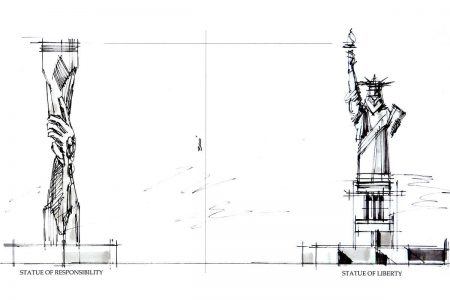“The human voice: It’s the instrument we all play. It’s the most powerful sound in the world, probably.” Julian Treasure
Our words matter. They carry power and have an impact. The question is, how do we use our voices and what kind of a difference, positive or negative, do our words make? What kind of a difference -do we want to make?
For example, when we have one-to-one conversations we can make a big difference in another person’s life by listening to their story and offering words of insight and encouragement. We can make a difference in teams and organizations by collaborating and contributing our ideas, working with others to achieve a shared goal.
While these ways of utilizing our voice are important and can be meaningful and powerful, what I really want to talk about here is how we use our voices to make a difference in the realm of politics.
Politics? The word leaves many people repulsed. That’s understandable given the dismal nature of much of what passes for political discourse in the United States these days. It may be an understandable reaction, but it is also a regrettable and even dangerous one. Citizen disengagement is exactly the opposite of what we need if we are to rebuild a healthy, functioning democracy and strong, desirable communities. Columnist E. J. Dionne observed that “a nation that hates politics will not long thrive as a democracy.”
There are a lot of complex reasons for the diminished, weakened state of our democracy, and one of the big ones is the lack of skilled, informed engagement, including the effective and constructive use of our voices as “everyday citizens,” a term used by my friend and mentor Harry Boyte.
Harry points out in his book Everyday Politics that politics is supposed to be conducted by the people: “Politics, from the Greek, politikos, meaning of the citizen, in its original meaning is the activity of amateurs, not specialists.” Harry argues that as citizens we have ceded our responsibilities and opportunities to professionals and specialists when what is required is our active, informed, skilled engagement with people holding differing views and interests, and with specialists as well, to solve problems and generate a vibrant, healthy society.
That is the way democracy is designed to work.
As long as we engage thoughtfully, listening to and sharing perspectives, using our voices to further mutual understanding and respect while sharing differences, we have the power to co-create our communities. Through the process of exercising responsible, engaged citizenship we also refresh and co-create democracy.

Sketch of the proposed Statue of Responsibility. Image courtesy of the Responsibility Foundation.
It is no secret this requires work on our part. Citizenship is as much about responsibility as it is about freedom. In Man’s Search for Meaning, Viktor Frankel writes “Freedom is only part of the story and half the truth…. That is why I recommend that the Statue of Liberty on the East Coast be supplanted by the Statue of Responsibility on the West Coast.”
Among the responsibilities of citizenship is being thoughtfully informed and knowledgeable about issues. That means not accepting information from social media or our favorite pundits without question, without verifying that information or considering other, often more substantive sources.
Another responsibility of citizenship is to learn and embrace the skills of civic engagement, which includes responsible use of our voices. With our voices we can shred or build trust; we can demonize or respect; we can talk at or be silent and listen to; we can dismiss or consider; we can create factions or common ground. What are we accomplishing with what we say, combined with what we are willing to hear? Are we building or destroying community in the way we think, what we say, and how we say it?
The national motto of the United States is E pluribus unum, “out of many, one.” In a democracy, people work with others across differences in common purpose on behalf of the common good, on behalf of what optimizes wellbeing for all.
Peter Block writes that “a citizen is one who is willing to be accountable for and committed to the wellbeing of the whole.” The problems, challenges, and opportunities we face are far too complex to tackle on our own. We need each other, so using our voices in ways that build community is essential if we are to survive and thrive individually and as a society.





If Peter Block is correct, then there appear to be precious few “citizens” in the current Republican Party, particularly among those elected to serve our nation in Washington. Just millionaires enhancing their personal wealth.